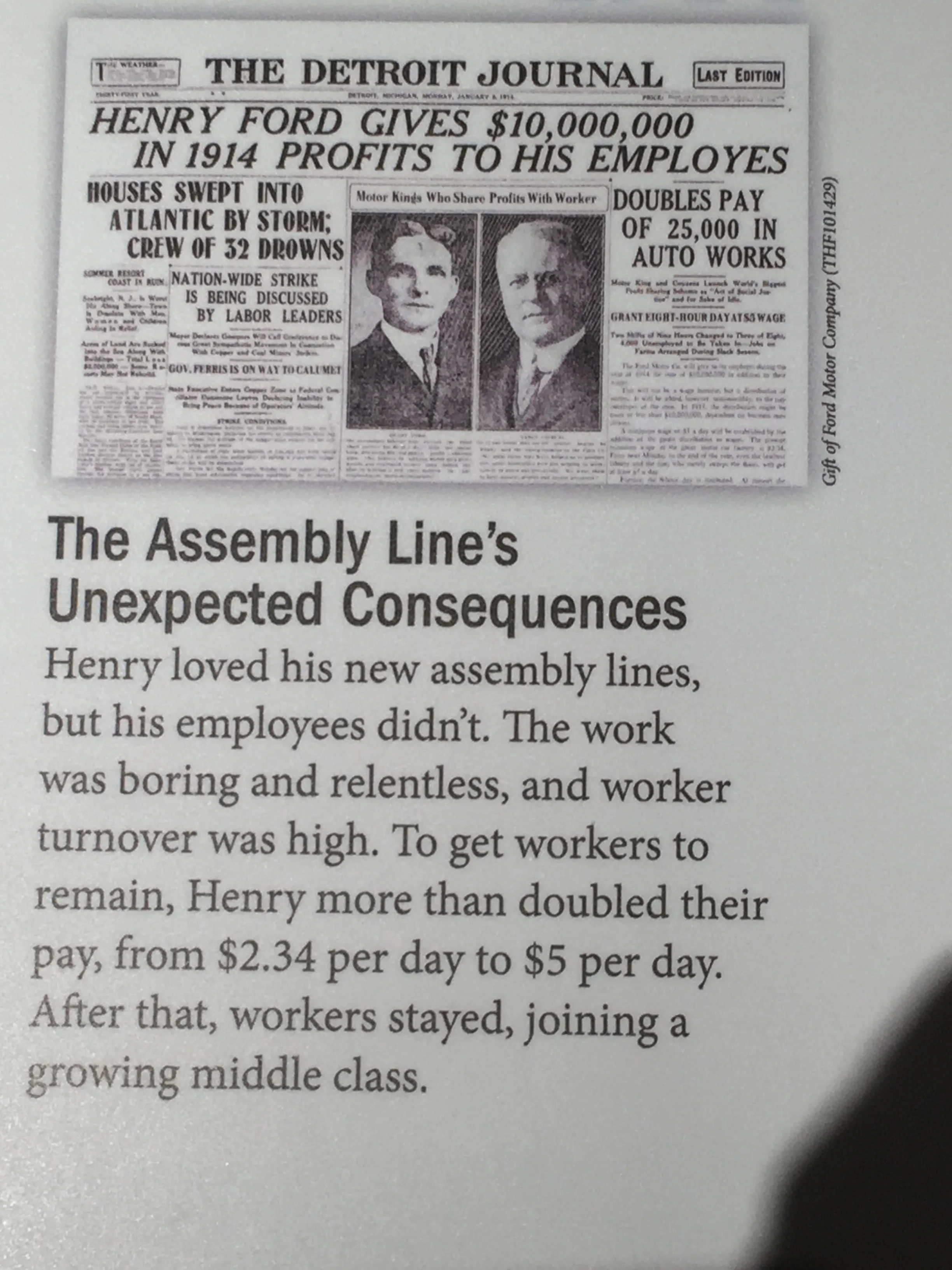On a small but honest plaque in the Henry Ford Museum in Michigan:
Henry Ford's decision in 1914 could be seen as generous and positive. The workers were joining a growing middle class after all. By doubling their pay, many of his workers were able to afford a car and also become customers.
But it is just as easy to frame it in a negative light. Even with the higher pay, the repetitive tasks were still boring and relentless. The high turnover decreased but the workers still disliked their jobs and how they spent the majority of their waking hours. This seems a very inhumane decision made by both the management and the workers.
I first learned of the term 'joy in labor' reading Unto This Last by art critic and writer John Ruskin where he famously challenges industrialization and the economic theories of his day that failed to account for the presence or lack of joy in labor among other things.
Nearly a century later there were echoes of Ruskin's ideas coming from the JFK.
“The gross national product does not allow for the health of our children, the quality of their education, or the joy of their play. It does not include the beauty of our poetry or the strength of our marriages; the intelligence of our public debate or the integrity of our public officials. It measures neither our wit nor our courage; neither our wisdom nor our learning; neither our compassion nor our devotion to our country; it measures everything, in short, except that which makes life worthwhile.”
It is difficult to rationalize or justify decisions based on subjective qualities like enjoying work. The value of learning, connection, joy and meaning in the production of goods and services for others is still difficult to quantify although there does seem to be agreement that these are desirable traits. And there is a large body of modern research establishing the relationship between happiness and productivity. Happy workers are more productive. Productive workers are more happy.
Despite the research, many of the people I know today eagerly look forward to weekends and vacations from their work. They are presumably looking for some of that joy and meaning so conspicuously absent in their daily work routine. The concept of enjoying labor seems so foreign in the U.S. today that many aspire to a life where they can stop working all together. Happiness will be theirs when they stumble on that clever product that can be manufactured for pennies in China and sold on QVC by the millions. My guess is they will be about as happy as lottery winners.
Click on the title to comment on this or any of our posts.

